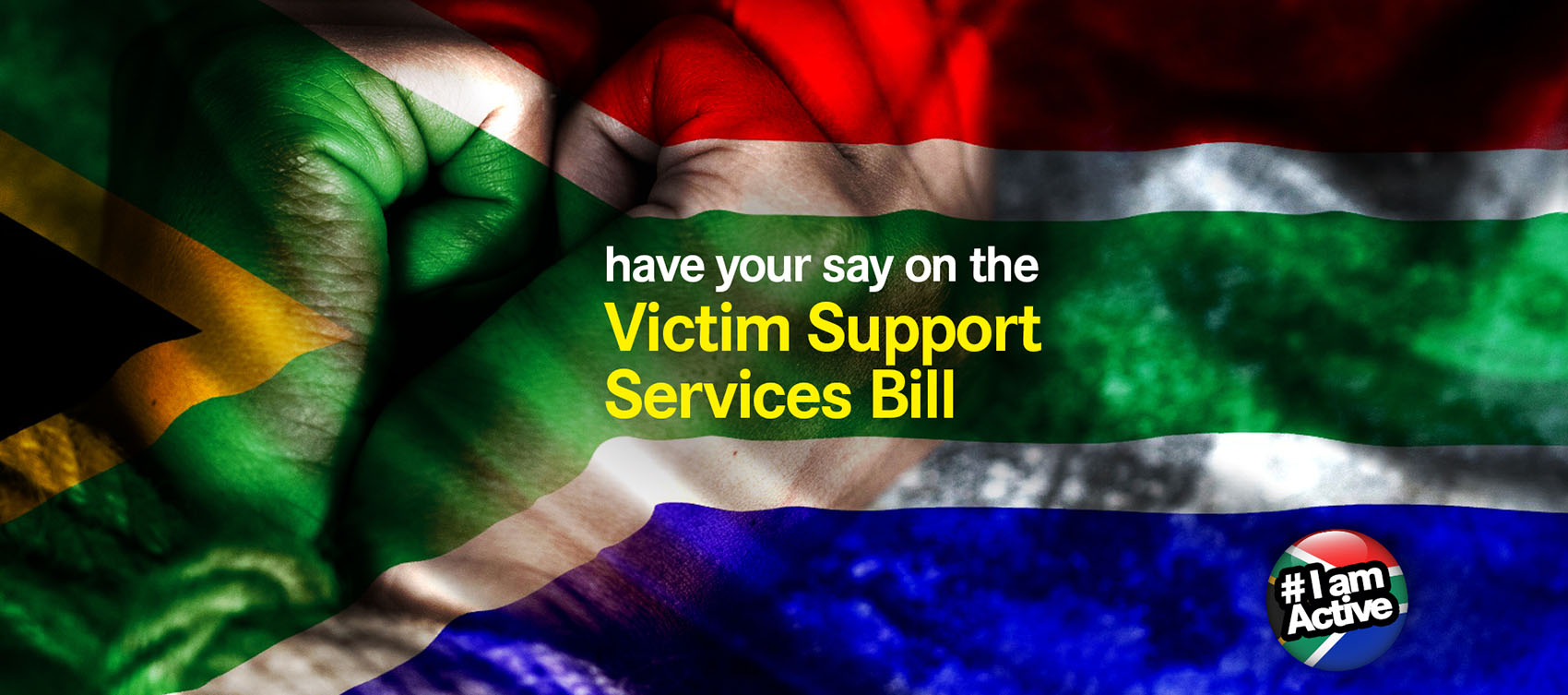The Minister of Social Development invites all stakeholders, including the private sector, civil society organisations and members of the public, to submit written comments on the Victim Support Services Bill.
Comments should include Clause Commented on, Proposal, and Motivation (see summary).
286 participants (closed 7 October).

Have your say – shape this policy.
DOWNLOAD DOCUMENTS
IN THE MEDIA
The VSS Bill is part of a critical legislative framework by Government in its endeavour to combat the scourge of crime, in particular gender-based and violent crimes. It, therefore, seeks to put the victim at the centre of the criminal justice system in order to ensure that the rights applicable to the perpetrator are also the rights entitled to the victim.
Currently the criminal justice system focuses more on the rights of an arrested person or accused person in line with section 35 of the Constitution of the Republic of South Africa, whilst limited emphasis is placed on the rights of the victims. It also seeks to begin to bring to the attention of the courts the meaning of section 9 of the Constitution of the Republic of South Africa, 1996 which provides that “everyone is equal before the law and has the right to equal protection and benefit of the law.” Victims of gender-based violence, therefore, require this protection and benefit of the law in the same manner it is extended to the perpetrators.
The Bill begins to recognise that victims experience secondary victimisation and therefore creates a prohibition against such. It provides that secondary victimisation is illegal and needs to be prevented at all times through our service provision.
The VSS Bill stipulates the various services to be provided to the victims vis-à-vis services channelled towards the accused. It delineates the services of various stakeholders according to their mandate and expertise. This includes the DSD psychosocial support services which are linked to the provision of sheltering services.
The VSS Bill advocates specifically for the legal representation of a victim. It calls for the State to endure the legal costs for the victim in cases whereby victims wish to sue the accused for damages. It also encourages providers of services to victims to be accredited to ensure that their services comply with the norms and standards as set by the Department of Social Development for all facilities. This will include ensuring that employees of facilities are vetted against existing registers for example the Child Protection Register (CPR) and the National Sexual Offences Register (NRSO) to protect victims.
ENABLING YOU TO SHAPE GOVERNMENT POLICY
Dear South Africa is a legally recognised and constitutionally protected non-profit platform which enables the public to co-shape all government policies, amendments and proposals. We’ve run many successful campaigns and have amassed a considerably large active participant network of over 750,000 individuals across the country and beyond.
We do not run petitions. We run legally recognised public participation processes which allow citizens to co-form policy at all levels of governance. Whereas petitions, even if they contain thousands of signatures, are considered as a single submission by government, our process ensures that each comment made through dearsouthafrica.co.za is recognised and counted as an individual submission by government.
Furthermore, we keep an accurate record of all participation and produce a publicly available report at the end of each project. This report forms the foundation of a sound legal case should the necessity to challenge the decision arise.
Participation costs you NOTHING, and is so easy and quick to do through the platform that you really have no excuse not to help shape policy BEFORE it becomes law. Legally challenging implemented law is costly and rarely successful. Prevention is better than cure.
Participation in decision-making processes means a possibility for citizens, civil society organisations and other interested parties to influence the development of policies and laws which affect them. We’ve made it easy for you as a responsible citizen of South Africa, to influence government decisions before they are made.

